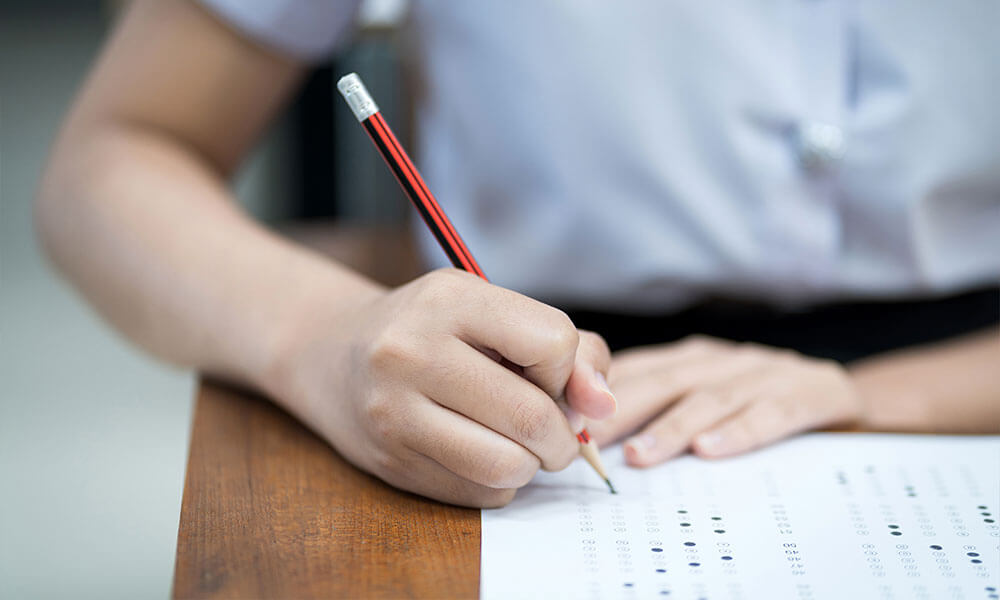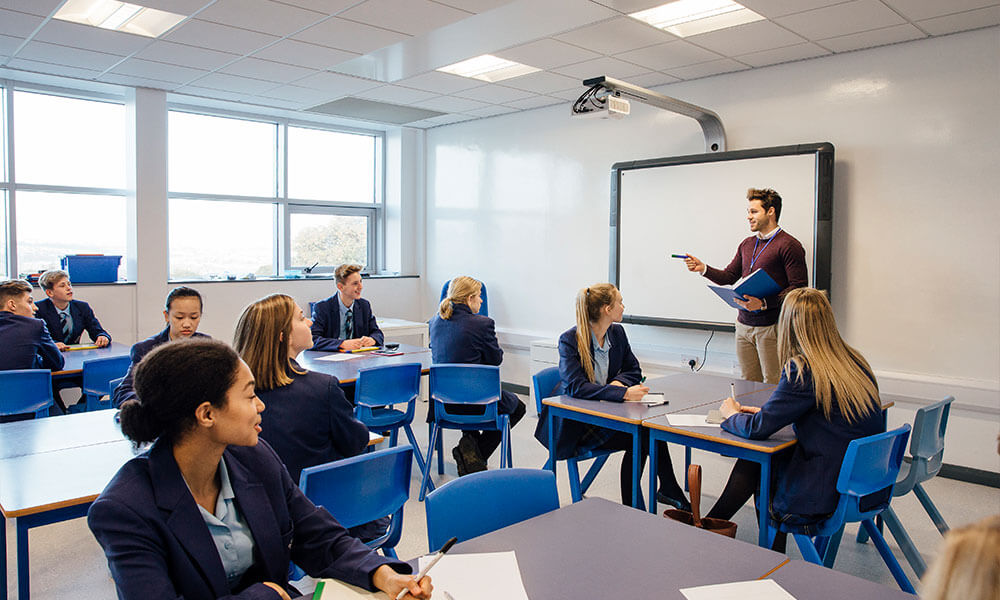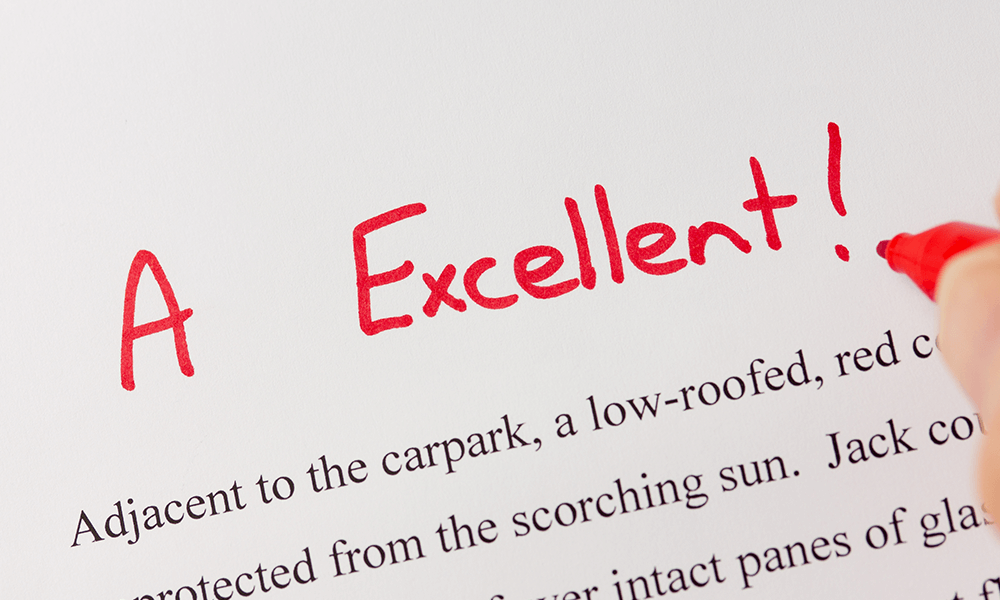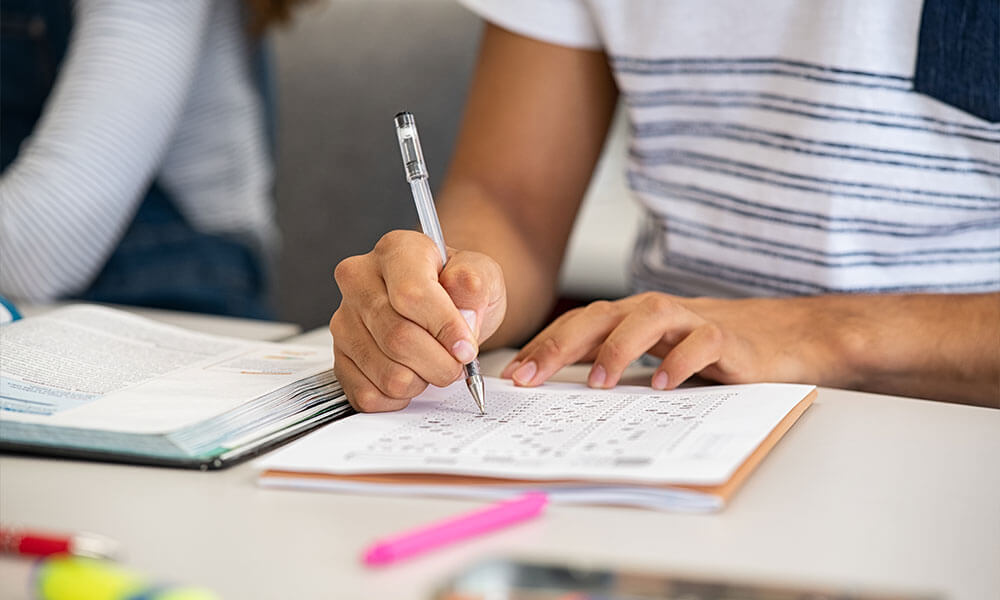
Understanding school exams in the UK – SAT’s, GCSE’s, A Levels and NSAs
Adjusting to life in the United Kingdom can be tough for an Overseas Filipino Worker (OFW). It can be even tougher when sending your children to a new school and trying to figure out the grading system in the UK.
Luckily, we’ve got your back.
To learn about the education system as a whole, you can read our previous article here. To find out more about the grading system in the UK, please read on.
It’s worth bearing in mind though that Scotland is slightly different to the rest of the UK. They administer their own set of exams called National Standardised Assessments or NSAs.
Click here if you would like to jump straight to the section about Scotland.
What are SATs in the UK?

The national curriculum tests, or SATs, are the first set of standardised tests your child will take in their budding academic career.
Your child will be introduced to the grading system in the UK and face these exams at the end of two specific stages during their schooling:
- Key Stage 1 – Your child will be around 5 years old.
- Key Stage 2 – Your child will be around 11 years old when they take this formal exam. In England, their scores will be recorded on league tables to be compared with scores from other schools in the country.
What subjects are covered in SATs?

At Key Stage 1, your child’s SATs will cover the following subjects:
- English – Your child will take a mandatory reading comprehension exam. They may take optional tests in grammar, punctuation, and spelling.
- Maths – Your child will test their basic arithmetic and reasoning skills.
- Science – Your child may take a test to demonstrate their ability to ask questions, spot patterns, and draw conclusions from the information given to them.
By the time your child reaches the end of Key Stage 2, their SATs will test the following skills:
- English – Your child will take two exams: one to test their grammar, punctuation, and spelling skills; another for their reading comprehension.
- Maths – Your child will work on not only addition and subtraction problems, but also problems involving multiplication tables, division, fractions, and decimals. They will also tackle a test in reasoning and problem-solving.
- Science – Your child may take this exam to demonstrate their knowledge of biology, the scientific method, and even electricity circuits.
Note: While children taking their SATs are required to take exams in maths and English, they may not have to take a test in science. The grading system in the UK only tests a sample of students to see how well children in the country learn from the national curriculum.
What other exams will my child take?

Even before SATs, your child will take other tests to measure where they are in their learning journey. These tests are:
- A baseline assessment – During the first six weeks of primary school, your child will be tested in maths, language, communication, and literacy. Their scores here will be the point of comparison as they progress through school and take other exams.
- Phonics screening – During Year 1, your child will undergo a test to evaluate their language and comprehension skills. They may take this test again in Year 2 if needed.
- Times table check – When your child is 8-9 years old, they will demonstrate their mastery of multiplication tables up to 12.
Throughout their early years at school, your child will undergo several evaluations to see how much they have learnt since the beginning.
For your convenience, we’ve summarised these tests below:
| Year | Age | Exam | Subjects |
| Reception | 4-5 | Baseline assesment | Maths, language communication, literacy |
| Year 1 (and 2 if applicable) | 5-6 | Phonics screening | Speech - understanding words |
| Year 2 | 6-7 | SATs | English, maths, science |
| Year 4 | 8-9 | Times table check | Multiplication tables up to 12 |
| Year 6 | 10-11 | SATs | English, maths, science |
As your child grows and they begin their journey towards their dream career, they will have to take more challenging tests.
Let’s look at these exams closely.
What are GCSEs?

The General Certificate of Secondary Education exams, or GCSEs, are the last set of tests your child will take before they finish Key Stage 4, the last stage of basic education in the UK.
By years 9 to 10, your child may start choosing around 9 GCSE subjects that interest them.
Depending on their goals, students can choose classes from a range of topics, including:
- Drama, music, and media studies
- Business and economics
- Product design and food technology
- History, philosophy, and religious studies
- Foreign languages, such as French, German or Spanish
- Chemistry, biology, and psychology
Along with these electives, students preparing for their GCSEs must take these required classes:
- English language and literature
- Maths
- Science
- Physical education
- Social studies
How should we choose GCSE subjects?

In case your child needs help with choosing subjects for their GCSEs, you may want to ask them to reflect on these questions:
- What do you see yourself doing when you leave school? – Your child may want to go to sixth form or college, or they may wish to start working and take on an apprenticeship.
- What kind of career do you envision for yourself? – Knowing what career they want to achieve can help your child pick subjects in preparation for their dream job.
- What do you like doing? – Finding out where your child shines will help them pick the classes they will enjoy.
- How do you like to study? When do you learn best? – Your child may learn best through reading, or they may prefer more hands-on experiences. Knowing how they like to learn can help them find the classes that best suit their learning style.
How are GCSEs graded?

In England, GCSEs are graded on a numerical scale of 9 to 1, with a grade of 9 being the highest. A standard pass would be a grade of four, while five is a strong pass.
Meanwhile, Northern Ireland’s GCSE grades range from A* to G. A* would be the highest grade you can get in your GCSEs, while G would be the lowest. There is also a C* grade for a strong pass and a C grade for a standard pass.
Wales also uses an A* to G grading scale along with a grade of U, which means “ungraded.”
Here is a grading guide in case your child will take their GCSEs in England, Northern Ireland, or Wales:
| England | Nothern Ireland | Wales |
| 9 | A* | A* |
| 8 | A | A |
| 7 | A | A |
| 6 | B | B |
| 5 | C* | B-C |
| 4 | C | C |
| 3 | D-E | D-E |
| 2 | E-F | E-F |
| 1 | F-G | F-G |
| U | U |
Once your child’s GCSE grades come in, what happens next?
A Levels

With their GCSE grades, your child can choose to find a job, get an apprenticeship, or prepare for university.
It’s worth noting that if your child studies in England, they will have to stay in further education or take on an apprenticeship until they are 18 years old.
If your child wants to attend university, they can devote two years to earning their A Levels in sixth form.
What grades your child gets in their GCSEs will influence what subjects they are qualified to study for in their A Levels. Some courses will require the highest GCSE grades possible before your child can take the class, while others require a standard pass.
At the end of their first year, your child will take their AS Level exams. After which, they can choose which subjects they want to continue taking to earn their A2 Levels.
Combined, the AS and A2 Levels make up the A Levels that most universities look for in student applications.
Depending on their performance, your child can earn a grade between A* to E on their A Levels. These grades will eventually expand or narrow down their choices for university.
GCSEs and A Levels: Additional resources

To find out more about GCSEs and A Levels, and the different subjects your child can take, read up on the following accredited exam boards:
Depending on where you are in the UK, there are slight differences in how the GCSEs and A Levels are conducted. Visit these sites to learn more about the exams in your area:
Scotlands grading system

Scotland administers their own set of exams called the National Standardised Assessments or NSAs. This also covers equivalent exams in Gaelic, called Measaidhean Coitcheann Nàiseanta airson Foghlam tron Ghàidhlig (MCNG).
NSAs evaluate students’ reading, writing, and numerical skills at levels P1, P4, P7, and S3.
To know how old your child will be when they take their NSAs, check out this table:
| Scottish Grade Level | UK Equivalent | Age |
| P1 | Reception | 4-5 |
| P4 | Year 3 to 4 | 7-8 |
| P7 | Year 7 | 10-11 |
| S3 | Year 9 | 13-14 |
NSAs are administered online and test results come out immediately. These scores are among the data that helps teachers monitor a student’s progress and plan how to motivate or assist them depending on that child’s needs.
Notably, there is no passing or failing grade for these assessments because NSAs evaluate your child’s progress in school. Your child does not need to study for them, it’s all part of a regular day at school.
As they move toward the senior phase of their education, Scottish students discuss their options with family and teachers: What do they want to study? What do they want to do after finishing school?
Helping them weigh up their options will guide your child towards the path that suits their goals.
Whether they take the academic or vocational route, your child may choose from these National Qualifications:
- National 1 to 5 – A set of units (subjects) a student must pass to earn a qualification for work, further vocational training, higher-level classes, or higher courses
- Highers and Advanced Highers – A set of subjects that students can study to find work, or usually to enter a college or university
- Skills for work courses – Vocational training that allows students to learn through experience and eventually find work in various sectors, including health, education, tourism, digital media, and emergency services
- National Qualification Group Awards include:
- National Progression Awards – A qualification a student earns after training with a school or company and mastering skills in a specialised vocation, like sound production or informational technology (IT) and software
- National Certificates – A qualification for students seeking to learn new, employable skills or to continue their education
If you wish to learn more about Scotland’s Curriculum of Excellence, click here.
If you are a Filipino working in Scotland, trust that your child will be getting an education from a curriculum that recognises their pace, preference, and unique learning style.
Saving for your child’s education

If you want to send your child to a private school in the UK, or if they wish to go to university, it’s important to have enough money saved to cover the bills and tuition.
You’ll also need to keep your funds safe, so do your research and pick a secure money transfer app with low fees and competitive exchange rates, like Kabayan Remit for example.
Your child’s journey through the grading system in the UK will be a long and challenging road, but we know you have the heart and determination to help them achieve their dreams.
